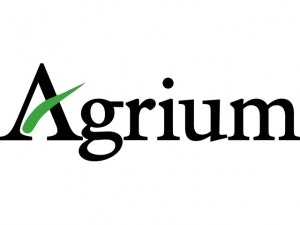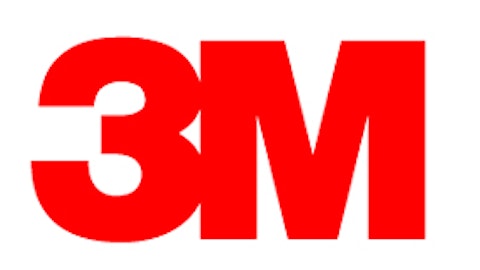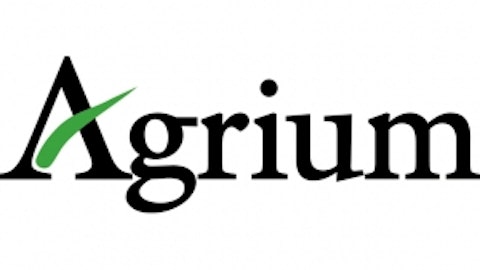
About Agrium and Jana Partners
As one of the largest Canadian companies by market capitalization, Agrium is a major global retailer and wholesaler of fertilizer, insecticides, fungicides, seed varietals and many other essential agricultural products. The company also sells fertilizer components like nitrates and potash (NYSE:POT) to smaller manufacturers and distributors. In recent years, Agrium has invested heavily in the micro-nutrients sector and now provides specialized growth stimulants and fertilizers to retail customers like greenhouses and turf growers. It deals with individual farmers, farmers’ cooperatives, and business customers in equal measure. In 2012, Agrium employed about 15,000 people and earned about $1.5 billion on $16.6 billion in gross revenues.
Jana Partners is a privately-held hedge fund that specializes in leveraged buyouts, mergers, spin-offs and other value-unlocking corporate actions. The fund specializes in nominating favored individuals to prominent positions on the boards of companies in which it owns significant stakes. Jana now owns about 6.2 percent of Agrium. At the company’s current share price, this stake has an equity value north of $1 billion. Although Jana is a privately-held concern and does not issue quarterly or annual income reports, the company is believed to have at least $3 billion in assets under management. Managing partner Barry Rosenstein is Jana’s point man on the Agrium play.
What Jana Partners Wants
Jana Partners has made two related demands of Agrium’s board. First, it has advocated for a spin-off of the company’s retail fertilizer and seed businesses. Upon making its desire public in August of 2012, Jana argued that such a spin-off would increase the value of Agrium’s stock by at least $50 per share.
Relative to Agrium’s early-August average closing price of about $95 per share, this would represent an increase to $145 per share and a shareholder premium of about 53 percent. Relative to the company’s current closing price of about $114 per share, such a move would represent a premium of roughly 27 percent.
Jana has also advocated for a focused program of share buybacks. This appears to be less controversial. In fact, Agrium wrapped up a share buyback program valued at $900 million during the latter half of 2012. At the moment, this appears to have satisfied Mr. Rosenstein.
Agrium’s Response
Agrium has responded forcefully to Jana’s spin-off demand. The company’s management team has issued several statements that accuse Jana of misreading its retail business and proposing “value-destroying” changes to the company’s structure. In addition, it has thus far resisted Jana’s board nominees. While this is not the final word on the proposed spin-off’s viability, it is unclear whether the action can proceed without a change of heart from Agrium’s board of directors. Then again, Jana has a history of winning drawn-out spin-off battles.
Complications and Legal Issues
Since Agrium has few North American equals, it appears unlikely that the company’s management team will be able to seek protection from a fellow competitor. Its closest Canadian analogue is Potash Corp./Saskatchewan (USA) (NYSE:POT). With a market capitalization of about $36 billion, Potash could serve as a buyer for Agrium’s retail division in a pinch. An Agrium buyout could further benefit Potash’s $2 billion in earnings and solidify a spot at the top of the industry.
However, Potash’s unfavorable debt ratio would make this transaction difficult to finance without substantial leverage. Despite the obvious synergies that would arise from such a deal, Jana appears to be betting that Potash will not become involved in this situation. Despite its size, the company simply has not expressed interest in large-scale acquisitions since the end of the financial crisis.
For now, the deal hinges on the whims of Agrium’s board and shareholders. Thus far, the company’s board has presented a united front in opposition to the retail spin-off. It remains to be seen whether shareholder pressure can force it to reconsider this position. However, Agrium’s stock price has already increased by more than 50 percent since June of 2012. If this trend continues, Jana’s promises of a large-scale share revaluation will begin to ring hollow.
Long-Term Prospects and Likely Outcomes
Jana is not new to the spin-off space. In recent years, the hedge fund has successfully pressured other firms to spin off under-performing divisions in order to unlock value in seemingly stable or profitable segments. For instance, it encouraged Marathon Petroleum Company (MPC) to spin off its pipeline division and buy back stock. It was also a major force behind McGraw-Hill’s (MHP) recent divorce from its educational-materials holdings. As such, it would appear unwise to bet against Jana’s spin-off expertise.
At the same time, Agrium’s board appears dead set against any potential deal. Given the recent run-up in Agrium’s stock price, it is unclear whether the company has more room to run in the absence of a deal. Investors who wish to bet against the likelihood of a spin-off should consider opening short positions in the fertilizer giant. Meanwhile, investors who believe that the spin-off will ultimately go through may still find Agrium attractive at these levels. The next few months will be crucial in determining the stock’s medium-term price action.
The article Who Benefits From This Hostile Bid? originally appeared on Fool.com and is written by Mike Thiessen.
Copyright © 1995 – 2013 The Motley Fool, LLC. All rights reserved. The Motley Fool has a disclosure policy.




